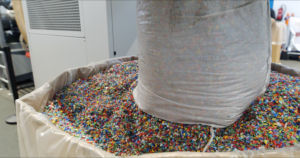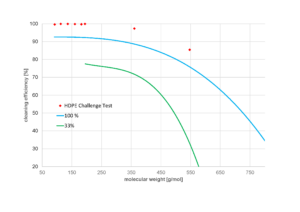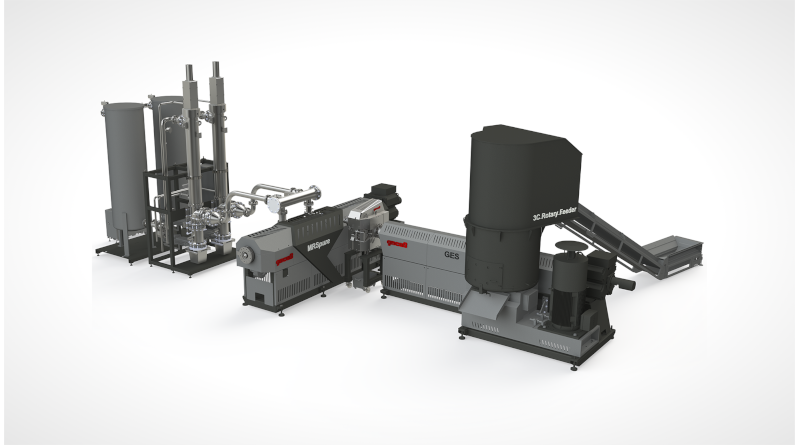Closed-loop recycling of HDPE – Pellets for food contact
High-density polyethylene (HDPE) is widely used in the manufacture of bottles, pipes and containers because of its strength and rigidity, but also in personal care products, detergents and industrial fluids because of its durability. Another major application is the manufacture of bottle caps and milk bottles. A recycle stream already exists due to changes in deposit regulations and the attachment of bottle caps to the bottle.

The caps go through the same washing systems as PET, are then separated in the float-sink tank and can be further processed. As a result, they meet the high-quality requirements for bottle flakes. When treated with the Gneuss “Super Clean Process”, the company says, the regrind can be reprocessed back into bottle caps, thus closing the recycling loop. The Gneuss Omnimax recycling system, integral to this process, has undergone multiple challenge tests and has several food contact approvals and letters of no objections (LNO.)

The technology does not require any upstream or downstream process steps. This is of great importance for polyethylene, as it can only be treated in other processes at very low temperatures and requires long residence times due to the slow diffusion processes involved.
The Omnimax purifies the polymer through degassing using an MRSpure extruder and a robust vacuum system to remove volatile contaminants. The Multi Rotation System (MRS), preceded by a melt extruder, optimises plasticising and degassing / deodorising / decontamination steps individually. Downstream of the melt extruder, the RSFgenius filtration system removes hard contaminants through ultra-fine filtration. Its fully automatic operation with guaranteed pressure and process consistency cleans the contaminated screens directly before they re-enter the melt channel, so that the screens can be automatically reused up to 400 times.
Typical filtration finenesses in HDPE recycling are 125-300 µm. In addition, for milk bottle recycling, the material can optionally be fed into the extruder via a 3C rotary feeder.
The recycling system is claimed to provide great flexibility: the Omnimax system compensates automatically for variations in the plastic waste to be processed in terms of moisture, contamination, viscosity, bulk density, etc. by adjusting the process para-meters so that material of consistently high quality can be produced, says Gneuss. Material changes, e.g. for batch changes, are possible within minutes due to the short residence time, so that the flexibility requirements of a new recycling plant are met, and production interruptions can be reduced to a minimum. This feature is claimed to make the Omnimax recycling system cost-effective, especially in applications where food contact or odour reduction is required.

